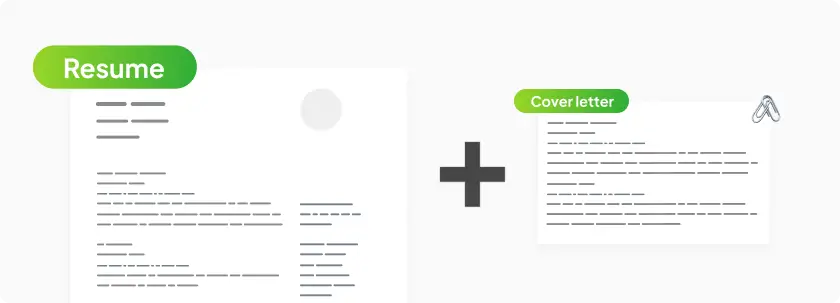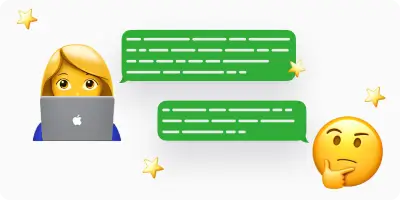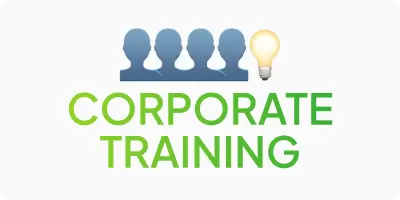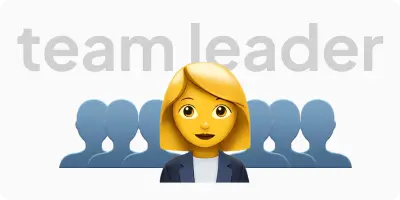
A cover letter is an important document when selecting a candidate that is attached to a resume when applying for a job. The employer sees the cover letter before the resume, and this document may determine whether your job application is reviewed.
The importance of a cover letter
- Personalization: A cover letter allows you to personalize your application for a specific job or company. You can emphasize why you are the right person for the position and what attracts you to the company.
- Reinforce your resume: While a resume provides an overview of your experience and skills, a cover letter allows you to elaborate on aspects of your career that are particularly relevant to a particular role.
- Explaining career breaks: If you have periods on your resume or CV when you were not working or engaged in other projects, it can cause distrust or suspicion among employers. A cover letter allows you to explain the reasons for these breaks and, on the contrary, convince the employer of your motivation and readiness for new challenges.
A cover letter to a resume has a great impact on the employer and allows you to describe your skills and other points that are missed in the resume in more detail. But how do you create a cover letter correctly?
How to write a cover letter?
To make your cover letter work in your favor, use the following structure:
- Personalization: Indicate who you are addressing and where you found the vacancy. State why you are interested in this particular position and company. It is also advisable to mention some points related to this particular company, if any (for example, you once did a project work for them or your friends worked here)
- Structure: Divide your letter into an introduction, body, and conclusion. The introduction should include your name, the position you are applying for, and the purpose of the letter.
- Describe your experience: In the body of the letter, describe your experience and relevant skills. Emphasize the achievements that best match the job requirements. Mention everything related to the job to highlight your experience and showcase your strengths.
- Motivation: Explain why you are attracted to the position and the company. Indicate how your professional goals intersect with the company’s policies and alignment with the ideology.
- Closing: Thank them for their attention, express your readiness for an interview, and provide contact information for further communication.
- Edit and check: Make sure the email contains correct grammar and is formatted correctly. Ask someone to review it before sending it.
We’ve looked at a sample cover letter, but how do you write it in a way that will make the employer pay attention to you?
How to write a cover letter to catch the employer’s attention?

- Start with a personal touch: use the name of the person you are addressing or the name of the company to show a personal touch. It sounds obvious, but not all people use it, but a personalized appeal works very well.
- Use a clear example or achievement: talk about your greatest achievements and give an example of a successful case. Of course, you need to make a first impression, so you need to evoke emotion. But never lie in your cover letter or resume about your skills and achievements.
- Pay attention to common goals: Learn about the company’s goals, slogans, and policies and emphasize how your goals align with theirs. This will make the employer feel like you are the right person for them.
- Ask questions or open them up to dialogue: Use questions or provocative statements that stimulate thinking, show your interest, and force a response. Some people take this point too literally and try to evoke emotion by any means necessary, but it should be done in a loyal and subtle way.
- Stand out from the crowd: Use an unusual aspect of your career or personality that will help you stand out from other candidates. Indicate what you consider to be your strengths and how it can help in the work process.
- Create a short but interesting cover letter: avoid common phrases and create a short text so that the employer does not get tired of reading it, but rather wants to learn more and communicate with you. This is where your interviewing skills come in handy.
Let’s take a look at common mistakes when creating a cover letter and understand exactly how not to write a cover letter.
Common mistakes when writing a cover letter
- Too general text: using simple, generic, template phrases that are not memorable and do not stand out at all. Always tailor your letter to each job posting.
- Grammatical and spelling mistakes: the literacy of a cover letter also affects the attitude of a future employer. Perhaps mistakes in the text will help you stand out, but definitely not for the better. Check the text before sending it to the employer.
- Lack of structure: When you write a text without a clear structure, the employer does not understand what its purpose is, what they should see, and why this document was created in the first place. It seems that having an introduction, main body, and conclusion is a school fiction, but having a structure simplifies the perception of information and allows you to convey the main idea of what you have written to the reader. Use a structure so that the person reading it can understand the purpose of the letter, your personality, and your conclusions.
- Repetition of resume: a common mistake when people do not know what else to tell about themselves and repeat their resume. Perhaps in this case, the cover letter will arouse interest, but when the employer gets to the resume, he will feel disappointed because he expected something unusual, and there will be the same information.
- Too long a letter: no one will read a letter that is too long.
- Lack of enthusiasm: a very interesting and not obvious mistake. In every office, factory, etc., there are a lot of employees who come to work and work to get through the day. Every employer has enough unmotivated employees who do not show enthusiasm, but simply complete tasks. Therefore, a cover letter without enthusiasm will not interest anyone. A dry, unemotional text will only cause negativity and you will most likely get a rejection.
- Non-compliance with the requirements: any vacancy has requirements and they exist for a reason. Your cover letter should indicate that you are exactly the person they are looking for and fully meet the company’s requirements.
- Lack of a call to action: this is the most unobvious factor, because we all think that everything depends on the employer and he will decide whether to hire you or not. However, if you include a call to action in your cover letter, such as “call me and we can talk more” or “please reply, I’m ready to work”, you will be able to stand out from the crowd and really push the employer to respond. This kind of call is usually perceived as a bit cheeky, but a properly crafted call to action evokes positive emotions.
Sample cover letter
Dear Viktor Ivanovich,
My name is Sergey, I am interested in your vacancy and as an SEO specialist with over 7 years of experience, I can be useful in this position.
At my previous job at Rozetka, I was responsible for analyzing and developing the semantic core. In a few years, I became an expert in my field and expanded the company’s semantics by 115% (a very good result for a company of this size).
Why do I want to work for your company? I like the fact that you focus on the company’s reputation and always do everything in good faith, my policy is the same as yours, I believe that quality is much more important than speed.
I will be waiting for your call to answer all your questions and am ready to work!
Best regards,
Sergiy
Conclusion
A cover letter is just as important a document as a resume and it influences the employer’s first opinion of you and your skills. If you want to be hired, write a good cover letter (make the right structure, use appeals, pay attention to common goals and calls to action). Do not use common mistakes, because then you will be like everyone else and will not be able to stand out in the eyes of the employer.












